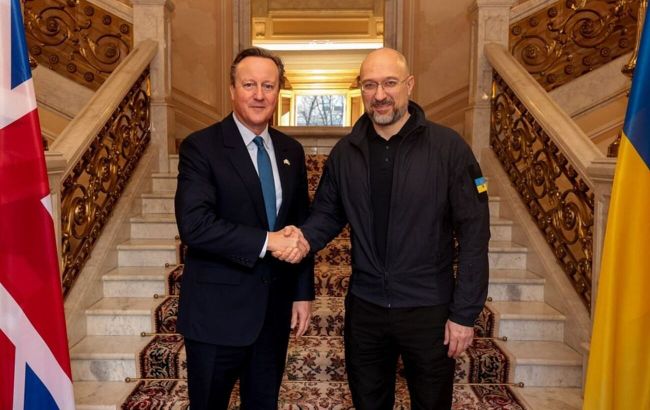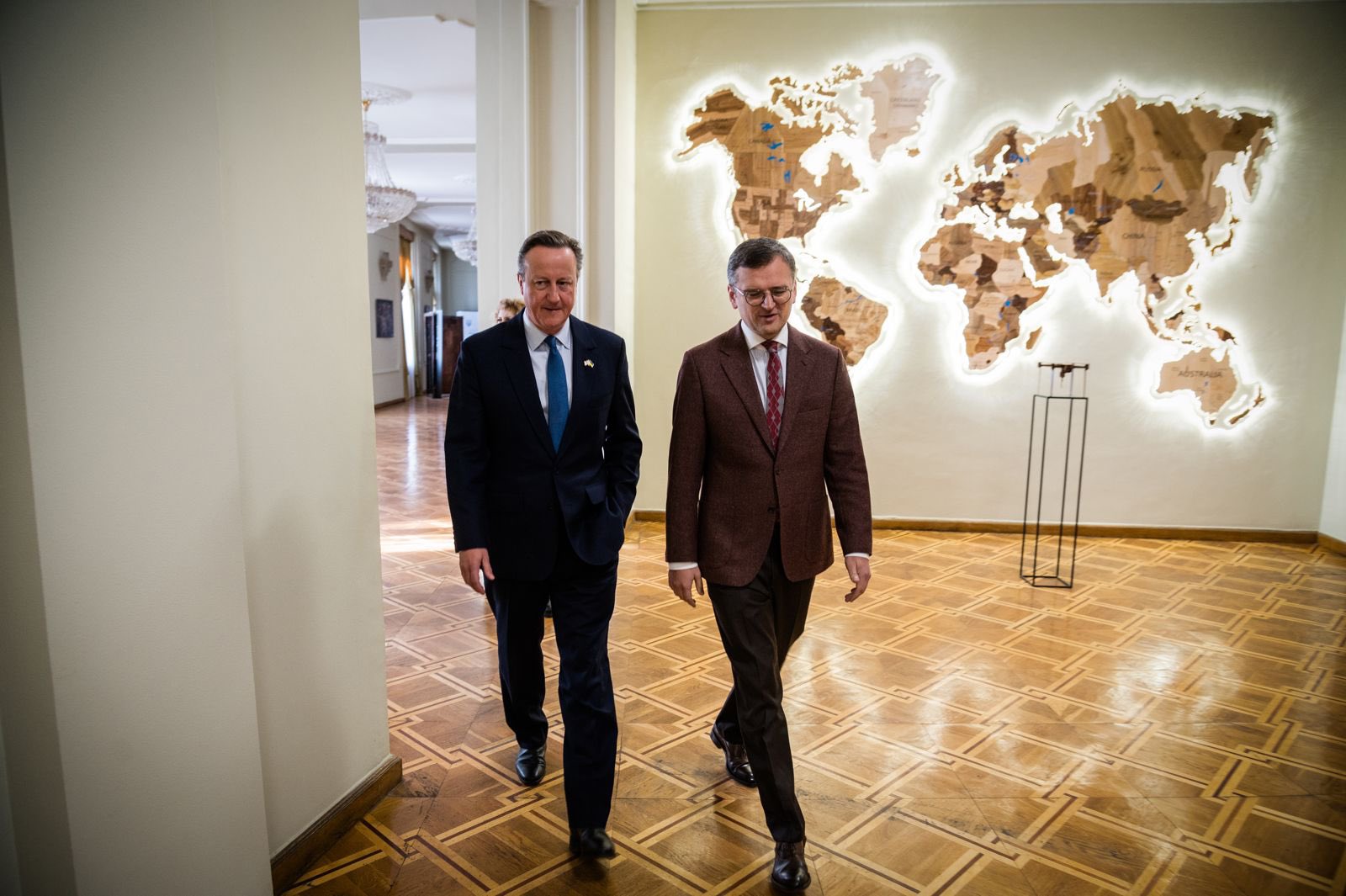David Cameron in Ukraine: Details of new British Foreign Secretary visit
 British Foreign Secretary David Cameron and Prime Minister of Ukraine Denys Shmyhal (Photo: facebook.com/dshmyhal)
British Foreign Secretary David Cameron and Prime Minister of Ukraine Denys Shmyhal (Photo: facebook.com/dshmyhal)
The newly appointed Foreign Secretary of the United Kingdom, David Cameron, has arrived in Ukraine. He made this trip just a few days after taking Office.
What is known about Cameron's visit, compiled by RBC-Ukraine.
During the preparation of the material, sources such as the Facebook page of Ukrainian President Volodymyr Zelenskyy, the Facebook page of Prime Minister Denys Shmyhal, the X account of Foreign Minister Dmytro Kuleba, the Office of the President's website, and Sky News were used.
What did Cameron say?
Updated 13:20. The Minister of Foreign Affairs of Great Britain promised to continue military support to Ukraine.
"We will continue to provide you with moral support, diplomatic support, economic support, but, above all, military support that you need not only this year, and next year, and however long it takes," Cameron said during his visit to Kyiv.
He also said, "Russia thinks it can wait out this war and that the West will eventually turn its attention somewhere else." But such judgments are far from the truth.
Meeting with Zelenskyy
Information about the visit of the British minister became known after Ukrainian President Volodymyr Zelenskyy personally met Cameron in Kyiv.
"David Cameron, the Secretary of State for Foreign, Commonwealth and Development Affairs of the United Kingdom, made his first official visit to Ukraine," wrote Zelenskyy and published a video of the meeting.
As reported by the Presidential Office, Zelenskyy, and Cameron discussed the security situation in the Black Sea and the further development of the alternative grain corridor.
They also coordinated positions on implementing joint multilateral and bilateral initiatives, including advancing Ukraine's "peace formula" and developing security guarantees within the framework of the Joint Declaration in support of Ukraine adopted by the G7 at the NATO Summit in Vilnius.
They dedicated special attention to the issues of Euro-Atlantic integration of Ukraine and the support of the United Kingdom for Ukraine's accession to NATO.
Meeting with the Prime Minister
Prime Minister Denys Shmyhal also wrote about the meeting with Cameron. He emphasized that the first international visit to Ukraine in Cameron's new role demonstrates the high and unequivocal level of support from the British government.
"Addressed important and current issues: military, financial, and sanctions support. Special attention to confiscating frozen Russian assets for the needs of Ukraine's recovery," Shmyhal wrote.
The parties also discussed support for Ukrainian exports, including insurance against war risks. The Prime Minister of Ukraine thanked the United Kingdom for training Ukrainian military personnel.
The Foreign Minister also met Cameron
Ukrainian Foreign Minister Dmytro Kuleba also held talks with the newly appointed head of the British Foreign Ministry.

Photo: British Foreign Secretary David Cameron and Ukrainian Foreign Minister Dmytro Kuleba (twitter.com/DmytroKuleba)
"Our negotiations confirmed that Ukraine and Great Britain are determined to work together for victory," Kuleba wrote on the social media platform X.
According to the Ukrainian minister, Britain remains steadfast in supplying weapons to Ukraine, increasing joint production, and eliminating the threat of Russia in the Black Sea.
Cameron as Head of the UK Foreign Ministry
On November 13, the Prime Minister of the United Kingdom, Rishi Sunak, carried out significant reshuffles in the government.
He dismissed the Minister of Internal Affairs Suella Braverman, who had criticized the massive march in support of Palestine in London the day before, calling it a "pro-Palestinian crowd."
The new Minister of Internal Affairs is James Cleverly, who previously held the position of Foreign Minister.
In turn, his place was taken by former Prime Minister of Britain David Cameron (2010-2016). He left his seat in Parliament while resigning from the position of Prime Minister in 2016. With Sunak's appointment, Cameron returned to significant politics.
The new Head of the UK Foreign Ministry supports Ukraine's struggle against Russian aggression. Interestingly, on June 5, 2014, Cameron refused to shake hands with dictator Vladimir Putin at a meeting. He also noted that the best way for the European Union to support Ukraine would be to impose new sanctions against Russia.

